Tracking your SEO progress and making data-driven decisions

Search Engine Optimization (SEO) is an integral part of any digital marketing strategy. In order to elevate the performance of your website and increase its visibility on search engines, it is essential to track your SEO progress and make data-driven decisions. By utilizing tools like Google Analytics and Google Search Console, businesses can gather valuable insights and optimize their SEO strategies for maximum impact.
In this article, we will explore the importance of tracking your SEO progress and the benefits of making data-driven decisions. We will also discuss the various tools and techniques available for monitoring your SEO performance, and how to leverage this data to continually enhance your online presence. With the right approach, you can ensure that your SEO efforts are consistently driving results and contributing to the overall success of your business.
Importance of Tracking your SEO progress
Tracking your SEO progress is crucial for the success of your online presence. You can gain priceless insights into what is working and what needs improvement by monitoring key elements such as website traffic, keyword rankings, and backlink quality. This lets you make data-driven decisions when adjusting your SEO strategy, leading to better search engine rankings and increased organic traffic.
Tracking your SEO progress helps you stay ahead of the challenger by identifying industry trends and adjusting your strategy accordingly. It also provides accountability and transparency to your clients or stakeholders, showing them the tangible results of your SEO efforts. You must track your SEO progress to ensure you take advantage of all valuable opportunities to improve your online visibility & drive more traffic to your website. Therefore, a robust tracking system is essential for a successful SEO campaign.
Ready to Discuss Your Project? Chat With Our Marketing Team
How to track SEO performance using Google Analytics
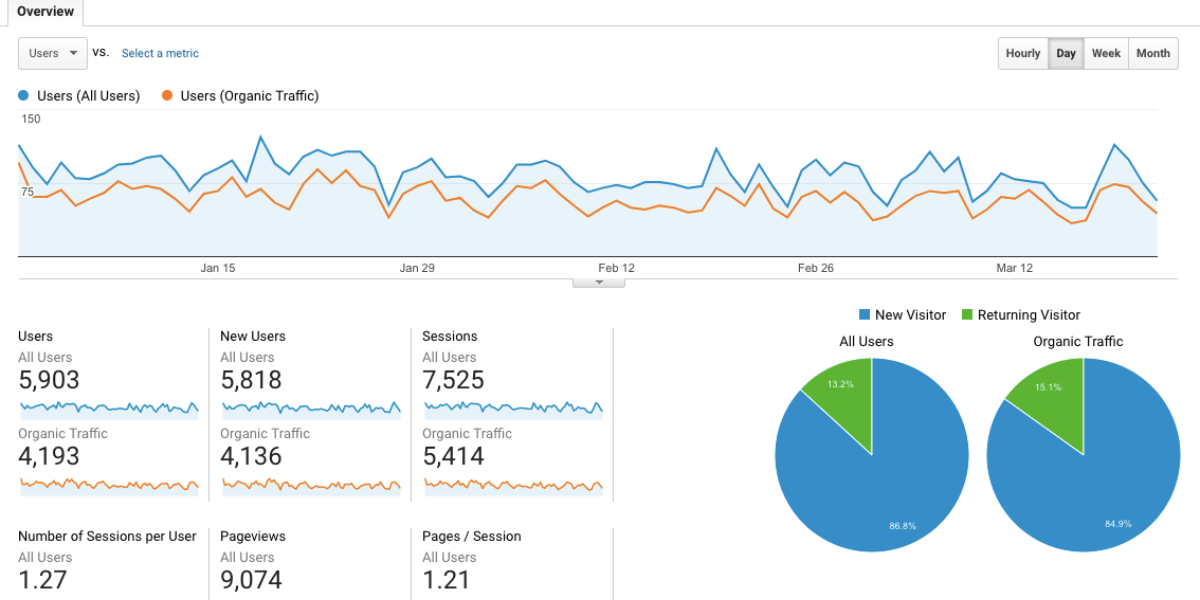

Google Analytics is an indispensable tool for tracking the effectiveness of your SEO efforts. By installing the tracking code on your website, you can monitor various metrics that provide valuable information about your website traffic and user interactions.
Using Google Analytics to monitor SEO performance involves analyzing organic search traffic, keyword rankings, and user engagement metrics. By examining these metrics, website owners can gain insights into how well their SEO efforts drive organic traffic and attract visitors to their site.
Utilizing Google Analytics to track progress over time allows businesses to compare historical data, enabling them to identify trends and patterns in their SEO performance. This longitudinal analysis is invaluable for making data-driven decisions to improve and optimize SEO strategies.
Setting up Google Analytics for SEO tracking
To track your SEO progress using Google Analytics, it’s imperative to set up the tool properly. This involves creating an account, installing the tracking code on your website, and configuring relevant settings to align with your SEO objectives.
Interpreting SEO metrics in Google Analytics
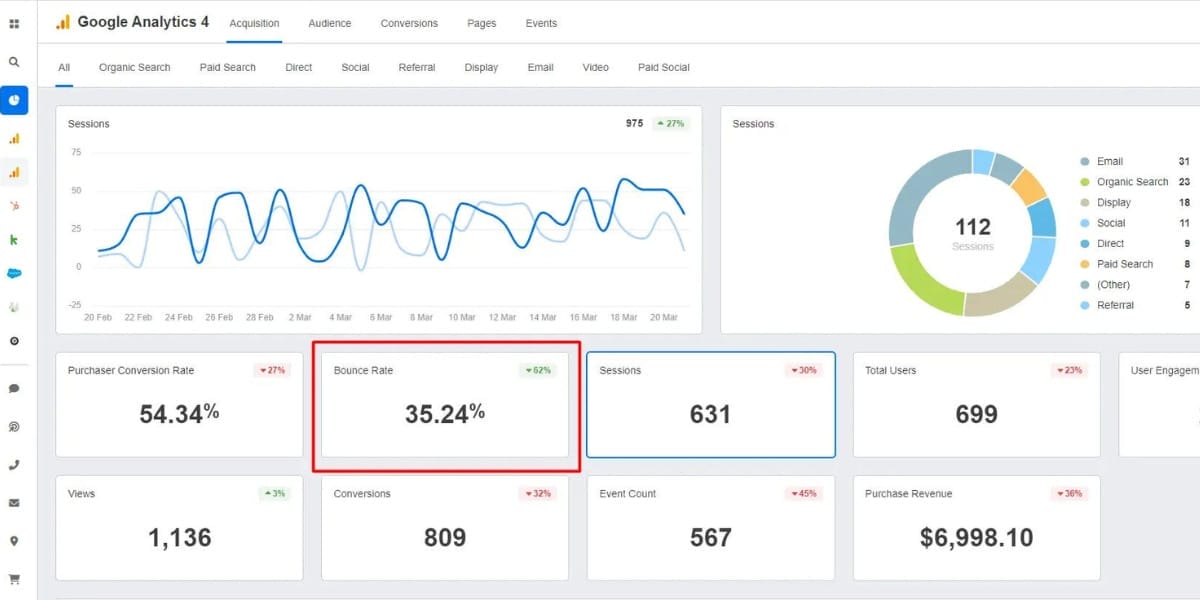

Once Google Analytics is set up, it’s essential to understand and interpret the SEO metrics provided. Metrics such as organic search traffic, keyword rankings, and user engagement can help you track the number of visitors to your site, assess their behavior, and measure the impact of your SEO efforts.
Utilizing advanced features in Google Analytics for SEO tracking
Google Analytics offers advanced features that can further enhance your SEO tracking capabilities. Utilizing features like custom reporting, conversion tracking, and goal setting can provide deeper insights into the performance of your SEO strategies and help you make informed decisions based on the data collected.
Using Google Search Console to track SEO progress
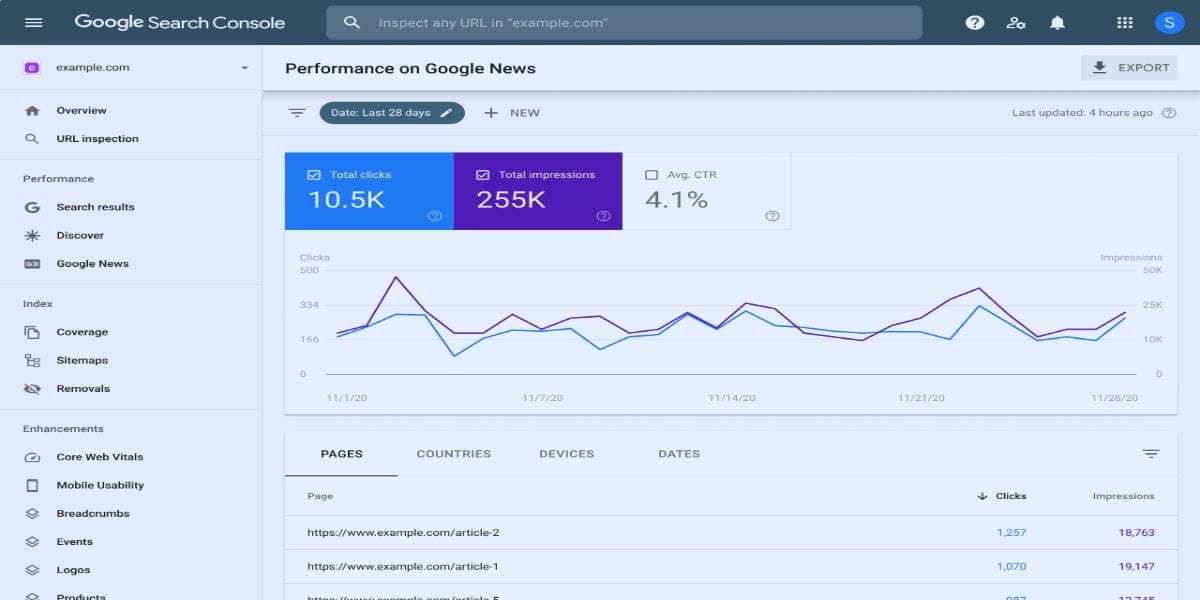

Google Search Console complements the insights provided by Google Analytics, offering additional data and tools to help you track your SEO progress and identify areas for improvement.
Tracking SEO progress using Google Search Console allows web admins to assess the impact of their SEO activities on search visibility and user engagement. Businesses can analyze this data to make informed decisions about improving their SEO strategies and online presence.
Utilizing Google Search Console to improve SEO strategies involves leveraging the information provided to identify opportunities for optimization, such as identifying underperforming keywords and enhancing meta descriptions to improve click-through rates. By employing these insights, businesses can make data-driven decisions to refine their SEO efforts effectively.
Connecting Google Search Console with Google Analytics for comprehensive tracking
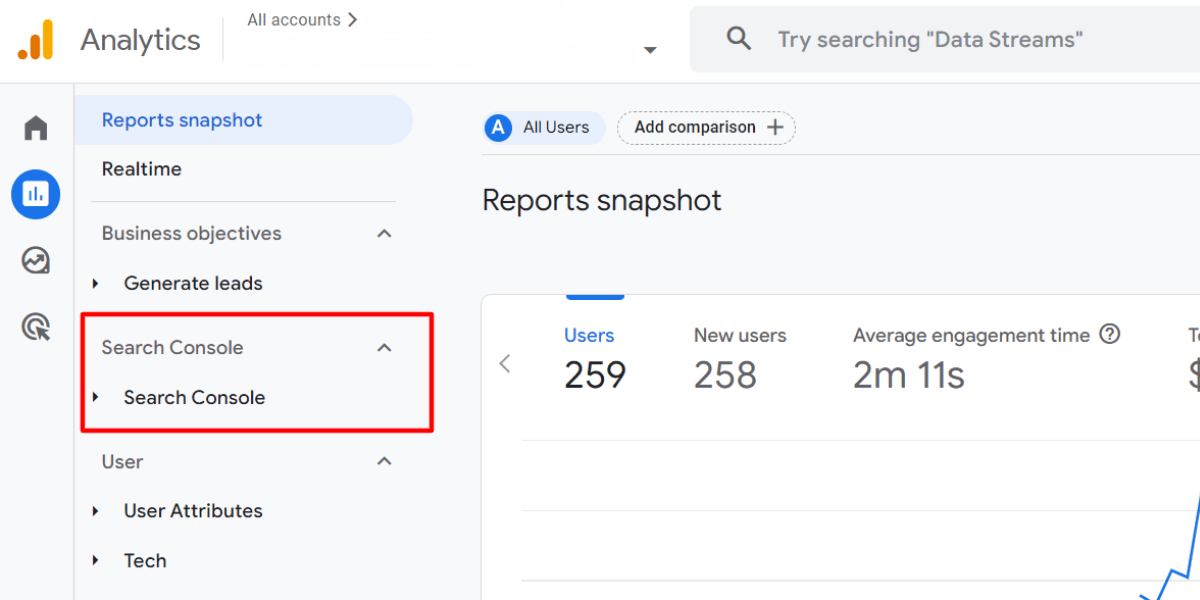

By connecting Google Search Console with Google Analytics, you can gain a comprehensive view of your website’s performance in organic search. This integration enables you to access valuable SEO data and make data-driven decisions to optimize your SEO strategies.
Utilizing search analytics to monitor SEO performance
The search analytics feature in Google Search Console allows you to monitor the performance of your website in Google’s search results. It provides valuable insights into the keywords that drive traffic to your site, the click-through rates, and the overall visibility of your web pages in search results.
Addressing issues and opportunities identified in Google Search Console data
Google Search Console also helps you identify technical issues and opportunities for improvement that can impact your website’s performance in search results. Addressing these issues based on the data provided is crucial for optimizing your SEO efforts and achieving better results.
Making data-driven decisions to optimize SEO success


Once you have gathered sufficient data from Google Analytics and Google Search Console, it’s time to make data-driven decisions to optimize the success of your SEO strategies.
Do you want to grow faster? Schedule a free consultation call with an expert
Factors to consider when making informed decisions based on SEO data
When analyzing your SEO data, it’s important to consider various factors such as user behavior, keyword performance, and content engagement. These insights can help you identify opportunities for improvement and prioritize your optimization efforts.
Defining and measuring the effectiveness of your SEO efforts
Defining key performance indicators (KPIs) and measuring the effectiveness of your SEO efforts is crucial for tracking progress and making data-driven decisions. Understanding how well your SEO aligns with your business objectives enables you to make informed decisions that drive tangible results.
Implementing SEO strategies based on data insights
By leveraging the insights gathered from tracking your SEO, you can implement targeted strategies to address identified opportunities and make improvements where necessary. Data-driven decision-making ensures that your SEO efforts are optimized for maximum impact.
The impact of SEO tracking on making informed decisions
![]()
![]()
Tracking the overall SEO performance using tools like Google Analytics provides businesses with valuable data to assess the effectiveness of their SEO campaigns. By analyzing SEO metrics and monitoring data, businesses can achieve insights into the success of their SEO efforts, enabling them to make informed decisions to refine and optimize their strategies.
Assessing the success of your SEO campaign through tracking data involves evaluating key performance indicators such as organic traffic, keyword rankings, and user engagement metrics. By understanding the impact of their SEO efforts on the success of their business, businesses can refine their strategies to achieve better outcomes and improve their online performance.
Understanding how SEO efforts impact a business’s success requires diligent tracking and analyzing SEO metrics. By utilizing tools like Google Analytics & Google Search Console, businesses can gain valuable insights into the impact of their SEO strategies and make informed decisions to drive better results.
Tracking the overall SEO success and progress over time
![]()
![]()
Monitoring the overall success and progress of your SEO initiatives over time is essential for evaluating their impact and making continuous improvements.
Measuring the impact of your SEO campaign on organic search results
By tracking changes in organic search traffic, keyword rankings, and search visibility, you can measure the impact of your SEO campaign and ascertain its effectiveness in driving organic traffic to your website.
Evaluating the success of your SEO efforts in driving website traffic
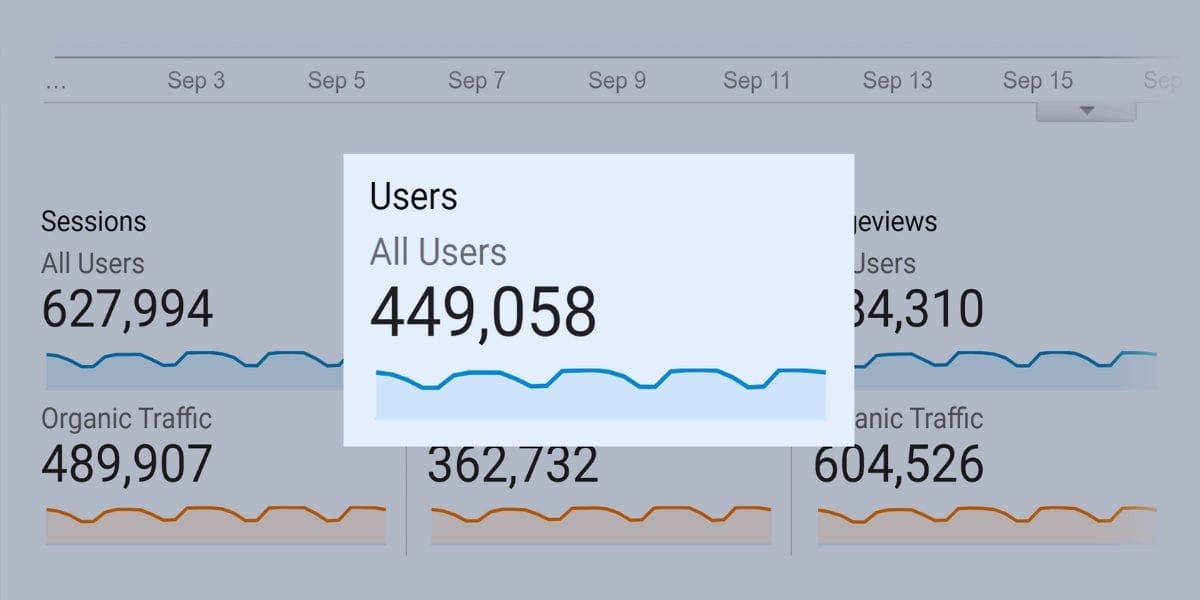

Assessing the correlation between your SEO strategies and website traffic provides valuable insights into the effectiveness of your efforts. By tracking the number of visitors, their engagement, and conversion rates, you can gauge how well your SEO initiatives are performing.
Utilizing tools like Google Analytics to monitor the progress of your SEO strategies
Tools like Google Analytics offer comprehensive dashboards and reports that allow you to monitor the progress of your SEO strategies over time. By analyzing trends and patterns, you can make adjustments and optimizations to continuously improve your SEO performance.
Measuring the success of your SEO efforts


Assessing progress over time is crucial for improving SEO strategies. Using Google Analytics & other tools to track progress, businesses can comprehensively understand how well their SEO efforts perform, identifying areas of success and those needing improvement.
Tracking SEO performance can help you optimize your strategies. This involves leveraging data to identify the strengths and weaknesses of your SEO campaigns. By analyzing this data, businesses can make informed decisions to refine their SEO strategies, leading to improved search engine rankings & enhanced online visibility.
Using Google Analytics to track progress provides a comprehensive view of SEO success. By monitoring key metrics and trends, businesses can make data-driven judgments to enhance their SEO strategies, resulting in better search engine rankings & improved organic traffic.
How to improve your SEO by tracking progress and making data-driven decisions


Using data to understand how well your SEO efforts align with your objectives is key to enhancing your SEO performance and achieving tangible results.
Measuring the success of your SEO strategies in meeting business goals
By measuring the impact of your SEO initiatives on business goals such as lead generation, online sales, or brand visibility, you can assess the effectiveness of your strategies and make data-driven decisions to improve their performance.
Implementing changes based on data insights to continuously improve your SEO


Based on the insights derived from tracking your SEO, implementing iterative changes to your strategies is essential for continuously improving your SEO performance. This iterative approach ensures that your SEO efforts are finely tuned to deliver optimal results.
Conclusion:
Tracking your SEO progress & making data-driven decisions is essential for online success. Utilize tools like Google Analytics & Search Console to gather valuable data on your website’s performance. Regularly monitoring this data helps you identify what strategies work and what needs adjustment. Focus on optimizing content for keywords, driving traffic, and improving visibility and user experience of underperforming pages. By consistently tracking your SEO progress and using data to make decisions, you ensure positive results for your website.
In conclusion, tracking your SEO progress and making data-driven decisions is essential for achieving your online goals. By utilizing the wealth of available data, you can make informed choices about improving your website’s performance and maximizing your impact on the search engine results pages.
















